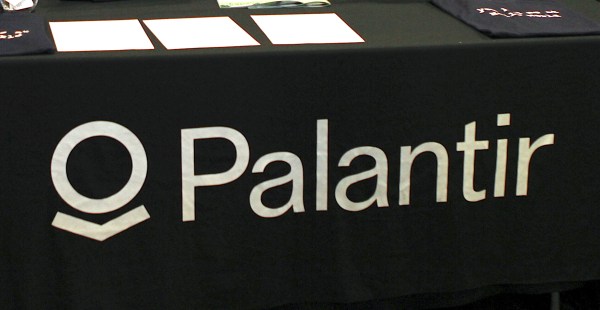He wasn’t the first and will certainly not be the last member of the U.S. intelligence community to betray the trust of his nation. But what do we really know about Edward Snowden, the former National Security Agency contractor who leaked thousands of documents detailing NSA’s domestic and global eavesdropping programs?
The truth is we know very little about Snowden beyond what the media outlets that have a vested interest in protecting him choose to report. But when viewed through the prism of the last 25 years of insider espionage, the Edward Snowden we do know seems to fit the typical profile of the trusted insider struggling to overcome personal and professional shortcomings, and suffering from a warped sense of moral superiority.
More than a decade worth of studies into the psychological profiles of malicious insiders have revealed several common characteristics that make information technology professionals — particularly system administrators, like Edward Snowden — an “at risk” population for malicious insider activity.
The most notable study was “Inside the Mind of the Insider,” conducted by Eric Shaw, a former CIA psychological profiler, and Jerrold Post, a former CIA psychologist and a noted expert on the psychology of terrorism and political violence. That study discovered that criminal insiders in the IT field share six personal characteristics with direct implications for risk, including a history of personal and social frustrations, computer dependency, ethical “flexibility,” reduced loyalty, a sense of entitlement, and a lack of empathy.
“In almost every case, the act which occurs in the information system era is the reflection of unmet personal needs that are channeled into the area of expertise,” Post said in an interview with this reporter conducted in July 2001.
Shaw declined to comment for this article because of ongoing work with the federal government. But Dr. Harley Stock, a clinical forensic psychologist who’s taught at the FBI Academy in Quantico, Va., said although many view Snowden as a whistleblower, his personal history tells a far different story.
“He’s very rare as an insider,” said Stock, pointing out most insider espionage cases have involved a desire for financial gain. “But when we look at Snowden, he has a very high need for attention and affection. This has shaped his life.”
Sick, shy & stressed
Born in 1983, Snowden grew up in North Carolina and Maryland. His father was a Coast Guard officer and his mother worked as a court administrator. They divorced in 2001, and Snowden went to live with his mother. His parents claim Snowden was ill as a teenager and failed to graduate high school. He eventually studied at a local community college to obtain a G.E.D.
Snowden was 17 when al-Qaida launched its attacks against the United States on Sept. 11, 2001. At that time, he adopted an online persona he called “The One True Hooha” at the website Ars Technica, where he participated in chat forums for gamers and hackers. His studies at a local community college would once again fall short of a degree.
In 2003, Snowden decided to join the Army Reserve, and requested a chance to undergo evaluation training for Special Forces to, in his words, “fight to help free people from oppression.”
Yet again, the young Snowden would fall short. He was dropped from the program and discharged from the Army four months later. Snowden claims to have broken both of his legs during training, but to date has provided no evidence. The Army has confirmed his service, but would not release his service record summary, known as a DD-214.
“He comes from a family that has a high need for achievement, but his experience is one disaster after another,” Stock said.
Transcripts of many of Snowden’s chat sessions, published by Ars Technica, show signs of somebody struggling to overcome a long string of personal and professional failures, and reveal a highly moralistic personality.
“Great minds do not need a university to make them any more credible: they get what they need and quietly blaze their trails into history,” he wrote.
With his dreams of becoming an Army Special Forces warrior shattered, Snowden returned to Maryland, where he landed a job as a security guard at the University of Maryland’s Center for Advanced Study of Language. The year was 2003, and NSA had just been designated as the executive agent for the center — the Defense Department first and only dedicated language research center.
“Somehow, he went from being a security guard to an IT position in the CIA,” Stock said. “That’s a pretty big jump for somebody who has no verified technical training and didn’t even graduate high school. At that point, his need for attention and affection is starting to be met.”
Snowden brags in the anonymous online forum about his hacking skills and his ability to land sensitive government work without a formal education. He joined NSA in 2009, at which time he reappears on the chat boards of Ars Technica, complaining about leaks of classified information and criticizing The New York Times for printing it. “Those people should be shot,” he wrote.
“I wonder how many hundreds of millions of dollars they just completely blew,” Snowden wrote, referring to the Times. “These are the same people who blew the whole ‘we could listen to osama’s cell phone’ thing the same people who screwed us on wiretapping over and over and over again. Thank god they’re going out of business.”
Then, something changed. According to Stock, it is a phase called cognitive dissonance — a period of mental stress that forms when one’s deeply held beliefs don’t match what’s happening in reality.
The One True Hooha disappears for a while from the Ars Technica chat forums. When he reappears in 2010, his tone is decidedly different.
“Society really seems to have developed an unquestioning obedience towards spooky types,” he wrote. “Did we get to where we are today via a slippery slope that was entirely within our control to stop, or was it an relatively instantaneous sea change that sneaked in undetected because of pervasive government secrecy?”
At NSA, the Snowden who has for years sought acceptance and attention has a self-described existential crisis.
“This guy has a fluctuating moral compass,” Stock said. “It points in a direction that is appropriate for him, regardless of how it effects others.”
According to Stock, Snowden then falls back on a justification mechanism known as hostile attribution bias. Now, he’s blaming somebody or something else for his problems.
“It allows you to justify your actions by taking revenge,” Stock said.
The post-leak Snowden
Jim Van Allen is the president of Behavioral Science Solutions Group Inc. and a former manager of the Criminal Profiling Unit of the Ontario Provincial Police who’s undergone behavioral sciences training at the FBI Academy. According to Van Allen, Snowden’s interview with the Guardian newspaper also reveals valuable information about his state of mind.
“To a certain extent, he fits very well into the general description of a whistleblower,” Van Allen acknowledged. “And the public largely is content with him being put into the whistleblower category.”
But from a psychological point of view, he seems to be moralistic and grandiose, Van Allen said.
“When you look through Snowden’s interview with the Guardian, there was some very emotional, concrete and absolute language used,” he said. ‘”Things were black or white, right or wrong. There’s very few areas of gray.”
Snowden also reveals paranoid thinking, according to Van Allen.
“His underlying thesis that the government could frame an innocent person by intercepting their communications and weaving it into a fraudulent storyline, that’s right out of ‘The Pelican Brief,’” said Van Allen, referring to the 1993 legal thriller by John Grisham. “Whether or not you want to call Snowden a whistleblower, when you get that type of personality coming into an organization, you are more at risk than if he wasn’t there.”
Criminal psychologists agree once people psychologically switch from intention to volition, they become dangerous. Snowden, they say, could have remained anonymous. Instead, he sought out journalists even before releasing the documents. Why did he do that?
“Because of his need for attention and affection,” Stock said. “He tries to portray himself as a Don Quixote, but it’s not true.”
Unlike the vast majority of past insider espionage cases, such former CIA officer Aldrich Ames and former FBI agent Robert Phillip Hansen, criminal psychologists say Snowden seems to have acted out for personal gain, not financial gain.
“He impresses me as a timid nobody,” Van Allen said. “I think he’s looking to make a name for himself. He sees himself as the White Knight crusader for privacy issues.”
Although Snowden has acknowledged publicly his only regret is the impact his actions may have on his family, neither Stock nor Van Allen buy that as a sign of a balanced thought process.
“He doesn’t seem to have a lot of regard for the consequences of his act,” Van Allen said. “It seems to be really reckless and impulsive.”
Impact on future hiring
The Snowden case raises important issues for federal hiring managers, especially in the intelligence community. Van Allen suggests more emphasis be placed on personality evaluations to determine if individuals are more loyal to their own judgment than they are to the organization’s goals.
Hiring managers must take extra care to consider such aspects of a person’s psychological makeup, he said, particularly when it comes to the younger generation of IT workers, who seem to be more prone to self-gratification and values-based thinking.
“The best way to keep your organization free from problems is to keep problem employees out in the first place,” he said.
The way you do that, Van Allen said, is through pre-employment screening, polygraph testing, psychological testing, and effective interviewing to see if prospective employees have ever been engaged in an activity they felt compromised personal values.
“What’s their record of protesting causes?” Van Allen said. “Pay attention to how rigid and emotional their language seems during the interview. Are they engaging in a lot of criticism of the organization’s practices? Are they suggesting that they know better than the organization? The answers to those questions could be very revealing.”
Follow @DanielVerton






